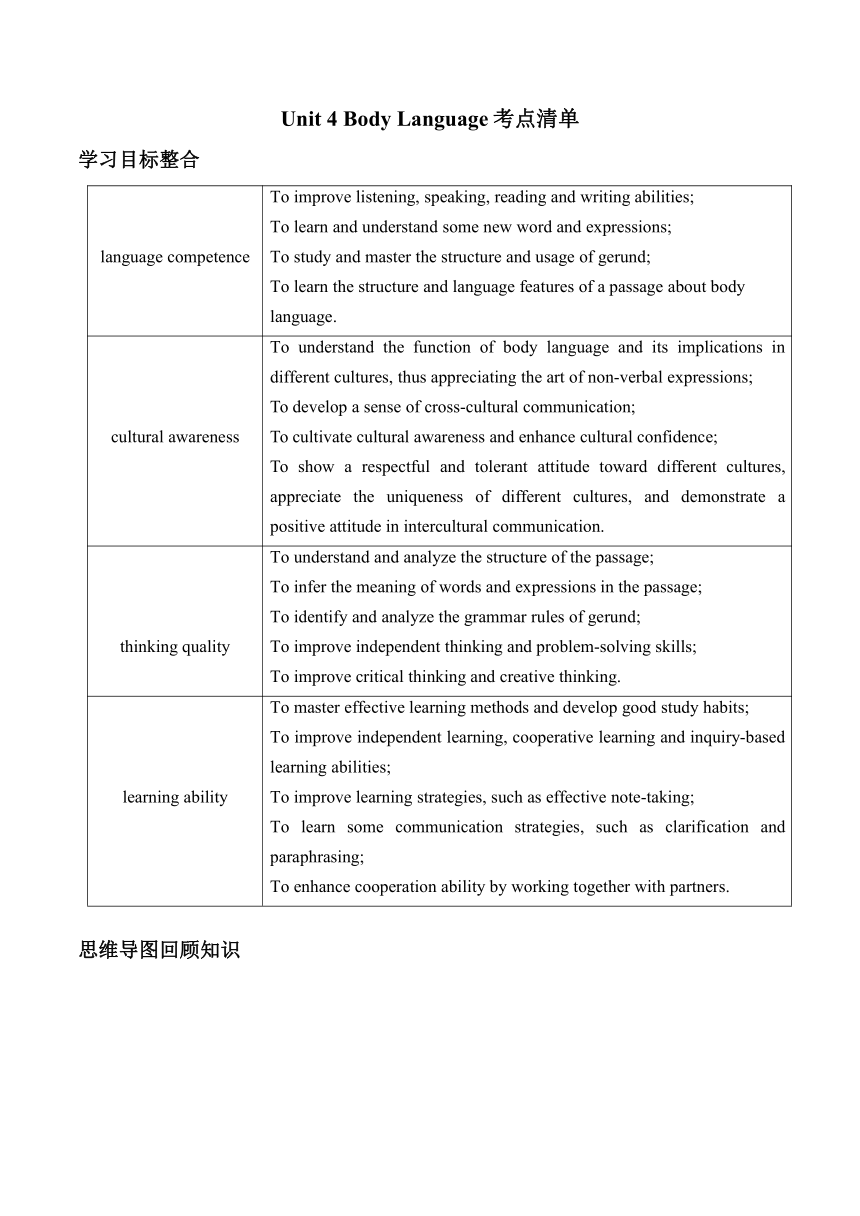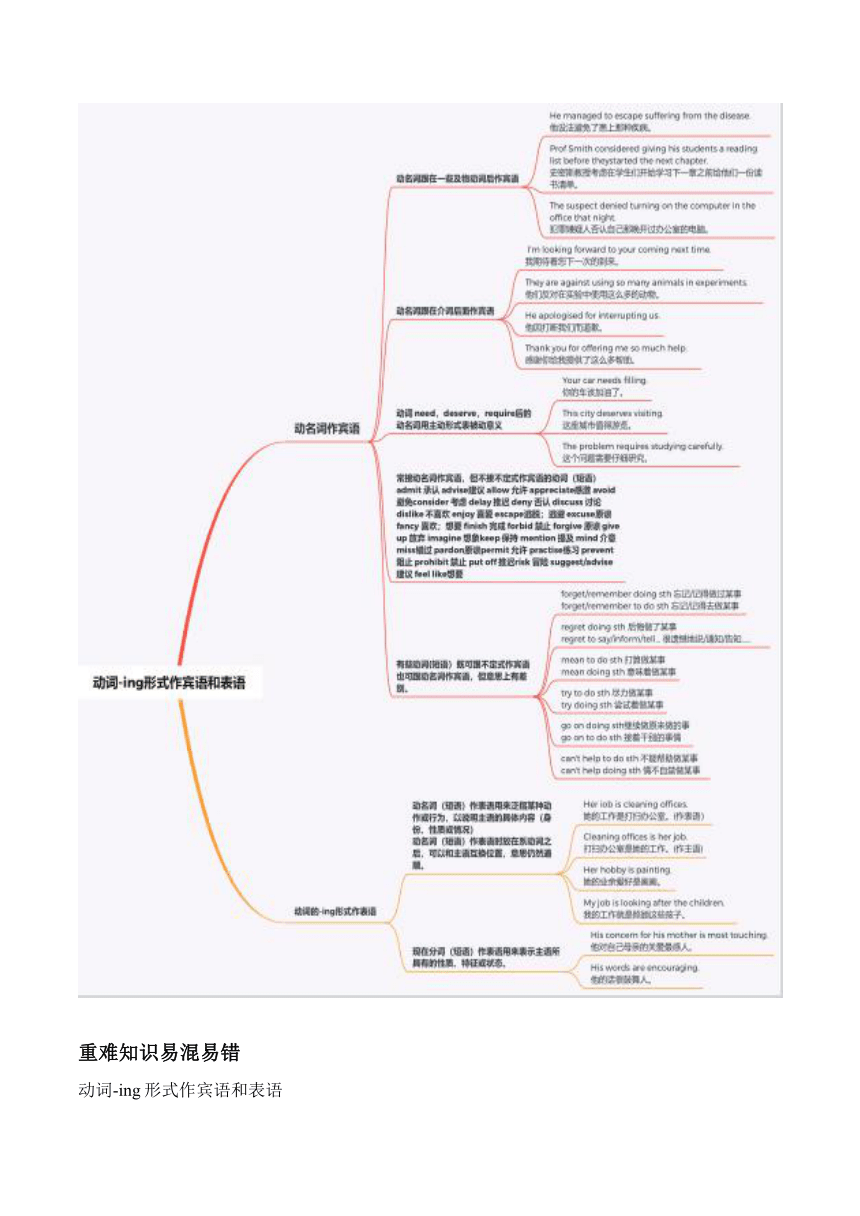

Unit 4 Body Language考点清单 学习目标整合 language competence To improve listening, speaking, reading and writing abilities; To learn and understand some new word and expressions; To study and master the structure and usage of gerund; To learn the structure and language features of a passage about body language. cultural awareness To understand the function of body language and its implications in different cultures, thus appreciating the art of non-verbal expressions; To develop a sense of cross-cultural communication; To cultivate cultural awareness and enhance cultural confidence; To show a respectful and tolerant attitude toward different cultures, appreciate the uniqueness of different cultures, and demonstrate a positive attitude in intercultural communication. thinking quality To understand and analyze the structure of the passage; To infer the meaning of words and expressions in the passage; To identify and analyze the grammar rules of gerund; To improve independent thinking and problem-solving skills; To improve critical thinking and creative thinking. learning ability To master effective learning methods and develop good study habits; To improve independent learning, cooperative learning and inquiry-based learning abilities; To improve learning strategies, such as effective note-taking; To learn some communication strategies, such as clarification and paraphrasing; To enhance cooperation ability by working together with partners. 思维导图回顾知识 重难知识易混易错 动词-ing形式作宾语和表语 1.动词-ing形式作宾语 (1) 作动词的宾语 Would you mind opening the window 你介意打开窗户吗? I suggest going swimming now. 我建议现在就去游泳。 注意: 常接动词-ing形式作宾语的动词可用下面的口诀帮助记忆: 避免错过少延期(avoid, miss, postpone) 建议完成多练习(advise, finish, practise) 喜欢想象禁不住(enjoy, imagine, can't help) 承认否定与嫉妒(admit, deny, envy) 逃避冒险莫原谅(escape, risk, excuse) 忍受保持不介意(stand, keep, mind) (2) 作介词的宾语 在下面的短语中,常用动词-ing形式作介词的宾语:insist on, object to, be good at, be fond of, lead to, put off, give up, look forward to, feel like, devote to, get used to, pay attention to 等。He insisted on doing it in his own way. 他坚持要按照自己的方法做。 (3) 在有些动词的后面,如 start, begin, continue 等既可接动词-ing形式也可接不定式作宾语,两者意义区别不大。 They continued working/to work as if nothing had happened. 他们继续工作,似乎什么也没发生过。 (4) 有些动词或动词短语后跟动词-ing形式或不定式都可以,但意思不同。接不定式一般表示动作尚未发生,而接动名词则表示动作已经发生。 remember/ forget to do. . . 记着/忘记要做…… remember/forget doing. . . 记着/忘记做过…… regret to do. . . 遗憾要做…… regret doing. . . 后悔做了…… try to do. . . 努力/试图做…… try doing. . . 试着做…… mean to do. . . 打算做…… mean doing. . . 意味着做…… stop to do. . . 停下来去做(另一件事) stop doing. . . 停止做…… can't help to do...不能帮着做…… can't help doing...禁不住做…… (5)用 it 作形式宾语,真正的宾语是 ... ...
~~ 已预览到文档结尾了 ~~